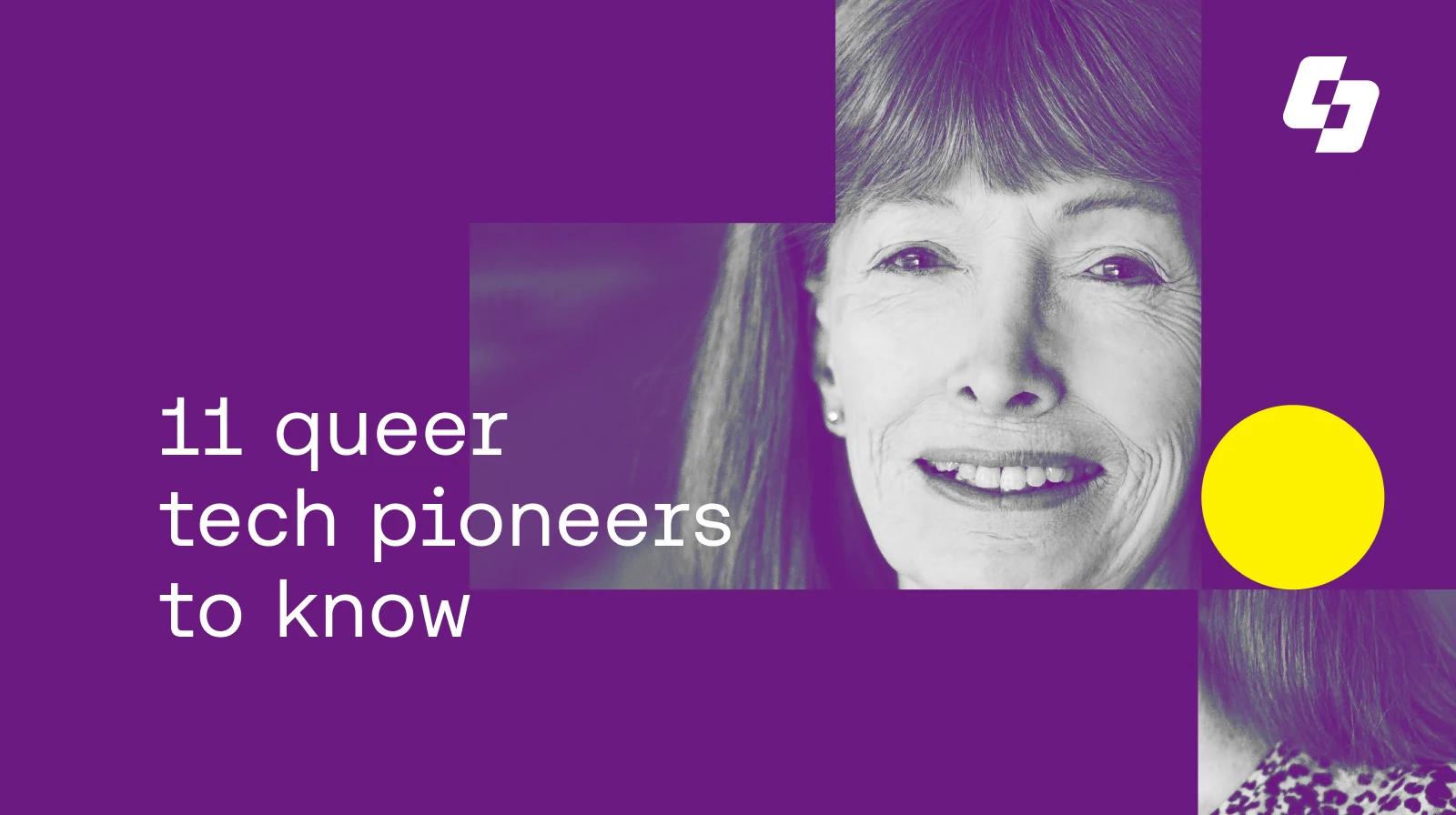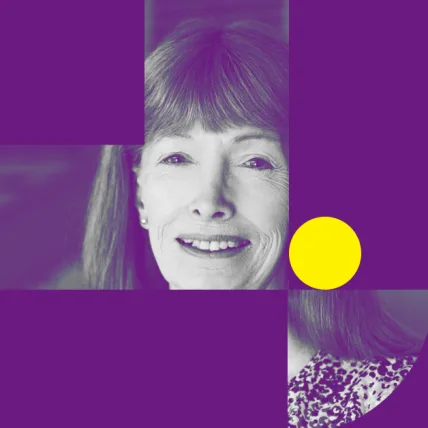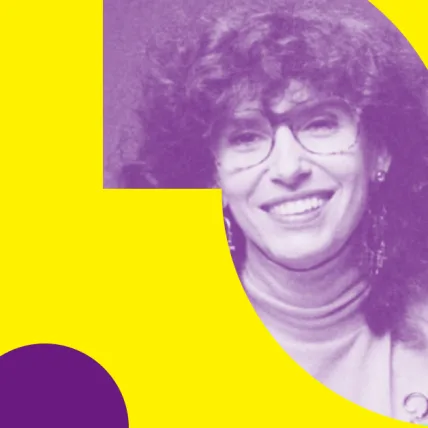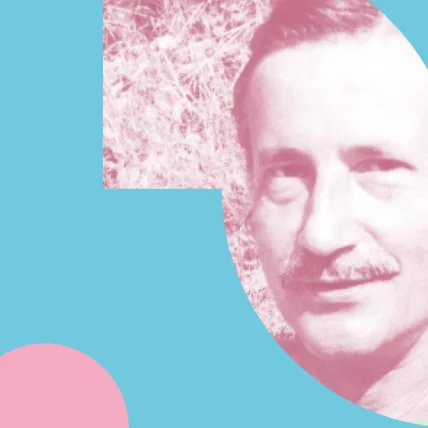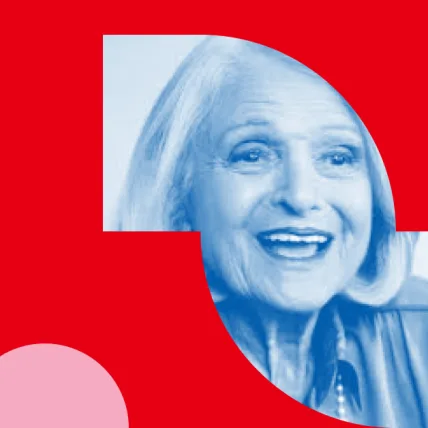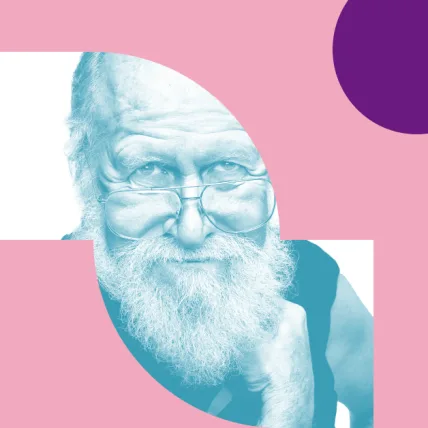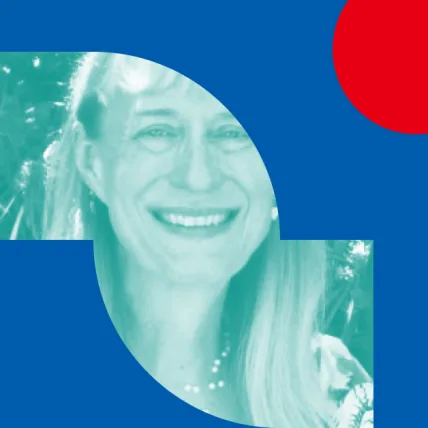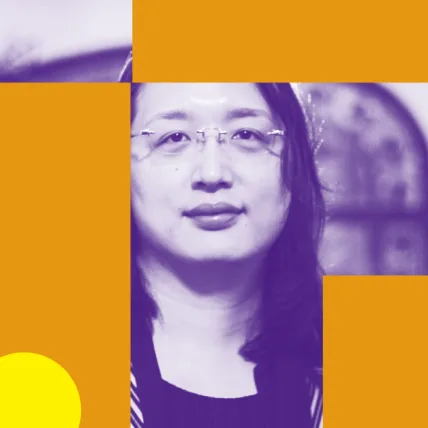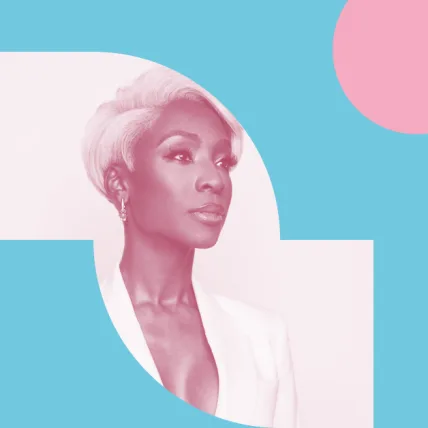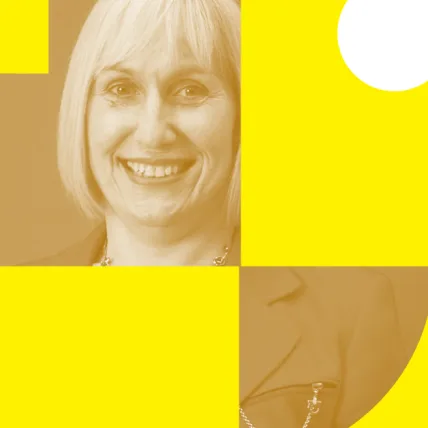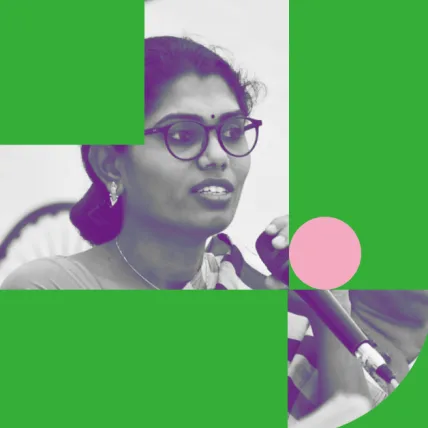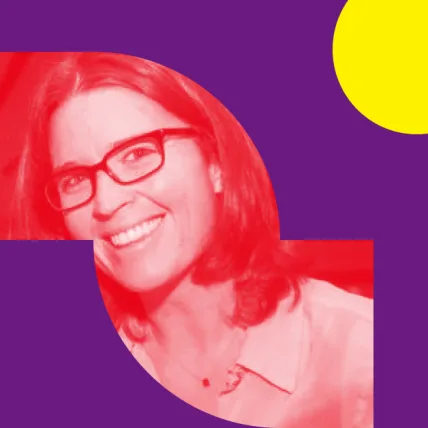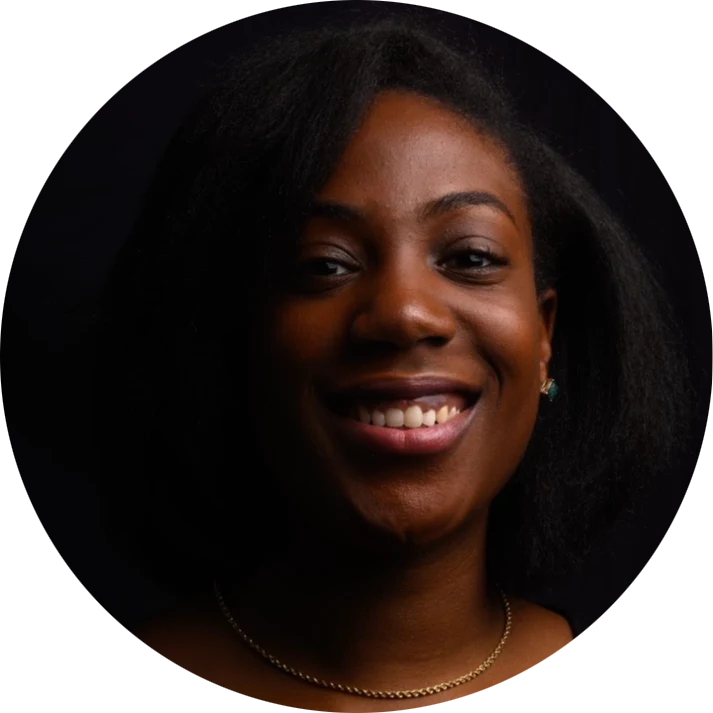Did you know, the father of Computer Science and inventor of the Turing machine, the first central processing unit (CPU) designed to decode and action a set of instructions, Alan Turing, was an openly gay man?
Turing, a Cambridge and Princeton graduate, invented a code breaking system called the Bombe while working as a cryptanalyst during World War II. The Bombe was extremely instrumental at interpreting the, believed to be, unbreakable German code that’s attributed to shortening World War II by approximately four years. As if this isn’t cool enough, he’s also the mastermind behind the idea of artificial intelligence and devising experiments to test its ability to think like a human – the Turing Test. You can thank Turing for the incessant AI content flooding your timelines!
As a cisgender black woman, I know all too well the impact of seeing someone who looks like me doing incredible things out in the world – beyond the medical, civil service, and entertainment fields. All due respect to doctors, lawyers, musical artists, and athletes, but black is ubiquitous; it’s everywhere, a coalescence of a whole bunch of different colors – very much like the rainbow. But unfortunately, there’s a disparity between what I know to be true and what I see represented out in the world. It brings a smile to my face to discover a new black writer or director, engineer, or small business owner – because I know they exist. Just because they’re unknown doesn’t mean they’re obsolete.
To that end, I can’t speak to what it feels like to be a queer person in our society. But I do see that queer greatness isn’t adequately represented across the board either.
Technology is a vast subject and the embodiment of decades, upon decades, upon decades of innovation, thanks to many, many great minds – many of which, were and are queer. To be honest, unless you’re a history buff, you may not have even known George Washington Carver, Florence Nightingale, Sir Isaac Newton, Sir Francis Bacon, or Leonardo DaVinci were impactful computer science leaders and queer.
Here are a few more queer tech greats, past and present:
1. Lynn Conway
(1938-2024)
52 years after being illegally fired for making the personal decision to live in her truth and identify as a woman, Lynn Conway has been awarded the rare IBM Lifetime Achievement Award. This award is only bestowed to those who have changed the world through extraordinary technological innovations.
Since being unjustly fired from IBM for her sexuality in 1968 Conway, a graduate of Columbia University Engineering School, hasn’t missed a beat. She has worked tirelessly in a variety of different capacities, including contract programmer, where she soon moved into a computer architect role. Oh, and she wrote the Introduction to VLSI Systems – the fundamental principles for future microprocessor chip design in the era of Moore’s Law. From there, Conway went on to lead DoD research in machine intelligence as Assistant Director for Strategic Computers at the Defense Advanced Research Projects Agency (DARPA). In 1985, she made the move to academia at the University of Michigan becoming a professor of computer science and electrical engineering and the Associate Dean of Engineering. And for all this time, Conway managed to keep her identity a secret, until 1999 when she made her official debut not only as a woman, but a transgender woman. Her legacy will live on in the hearts of many, forever.
2. Danielle Bunten (or Paula) Berry
(1949-1998)
M.U.L.E, or multi-use labor elements, is a multiplayer video game for Atari 8-bit computers, by Ozark Softscape, a Little Rock, Arkansas software company that developed multiplayer games for personal computers in the 1980s. Berry was the designer, programmer, and genius behind M.U.L.E, the world’s most influential multiplayer game. Programming text-based video games had always been a hobby for Berry. “When I was a kid, the only times my family spent together that weren't totally dysfunctional were when we were playing games. Consequently, I believe games are a wonderful way to socialize.” said Berry.
Throughout her career, Berry would go on to create 12 iconic games, 10 of which revolved around multiplayers (except The Seven Cities of Gold and Heart of Africa).
3. Christopher Strachey
(1916-1975)
Does anyone remember the nursery rhyme “Baa Baa Black Sheep”? One night, Christopher Strachey, who once was a physicist and teacher, decided to try something new and wrote one of the first computer music programs on the Ferranti Mark 1, or Manchester Electronic Computer. In addition to using the Ferranti Mark 1 to develop a series of famous computational art projects using a random number generating algorithm, Strachey is also praised as one of the fathers of Combined Programming Language (CPL) – one of the first iterations of the C programming language.
4. Edie Windsor
(1929-2017)
Where do we even begin with this woman? Besides achieving victory with her life partner with federal recognition of same-sex couples, overturning the Defense of Marriage Act (DOMA) in the Supreme Court case, United States v. Windsor, Edie Windsor also more-than-dabbled in computer science. At the highest technical position of its time, Windsor served as Senior Systems Programmer at IBM for 16 years. Becoming an extraordinary debugger, Windsor also founded the consulting firm, PC Classics, after leaving IBM, where she advocated relentlessly for queer individuals to dive deeper into tech.
5. Jon "Maddog" Hall
(1950-)
Fun Fact: Hall prefers to be referred to by his unique nickname, coined by his students at Hartford State Technical College where he was the Department Head of Computer Science, at a time when he had “less control over his temper.” Jon “Maddog” Hall is now the board chair for The Linux Professional Institute, but while at Hartford State Technical College, Hall published an article in Linux magazine celebrating Turing’s 100 birth anniversary in which he came out as gay, calling Turing his hero. How madly awesome of him.
6. Mary Ann Horton
(1955-)
The Usenet is the foundation for the Internet that we all know and love today. Computer scientist and transgender activist, Mary Ann Horton, is one of the principal founders of the decentralized computer network, as well as uuencode, the antecedent to modern email attachments. Horton is also the woman behind Lucent Technologies becoming the first company in the United States to include transgender-inclusive language to its EO policy.
7. Audrey Tang
(1981-)
Audrey Tang was learning Perl at the age of 12, launched a startup at the age of 12, worked in Silicon Valley by age 19, and became Taiwan’s first Minister of Digital Affairs in 2016 - the first and youngest non-binary and transgender official in Taiwan’s executive government. Tang is a nonbinary transgender software developer and self-described “civic-hacker”. During the pandemic, Tang promoted an open source website that was a driving force in Taiwan’s tech-based COVID-19 response; creating a hybrid-solution using QR codes located at various local businesses to make it easier for epidemiologists to contact trace COVID-19 cases and further contain the spread of the COVID-19 disease.
8. Angelica Ross
(1980-)
Between coding, trans advocacy, acting, and everything in between – Angelica Ross has just about done it all. You may have seen Ross in the hit tv shows, Pose and American Horror Story. But behind the scenes (literally and figuratively) she’s also the founder of TransTech Social Enterprises, a platform that provides tech training resources to underserved LGBTQ communities. “So many times, LGBTQ+ and marginalized people are not afforded the opportunities to be creative because life is always at our heels… but technology is that one thing that can give you your creativity back.”
9. Sophie Wilson
(1957-)
Distinguished Fellow of the British Computer Society, Sophie Wilson is a woman to know. In 1982, Wilson became the engineering mind behind the ARM microprocessor, a technological breakthrough to increase device power without compromising speed. The ARM processor is now used in several popular devices we know and love, including tablets, smartphones, gaming consoles and broadband routers.
10. Grace Banu
(Living, but birth year is unknown)
Grace Banu came out to her parents as a woman at the age of 16, where she was subsequently put into an asylum for conversion therapy. Ironically, it was there where the rest of her life in advocacy was born. After becoming familiar with the writings of Dr. BR Ambedkar, the civil rights leader who fought against the caste system in India, as well as Karl Marx, Banu’s activism career flourished. Chennai, a software firm, was her first place of employment out of college. She worked here for almost four years and accumulated the funds needed to complete her sex transition. Banu became the first transgender person to be admitted to an engineering college in the state of Tamil Nadu. Today, she works hard to lead efforts in the transgender community for constitutional equality and liberty for trans individuals who aspire to follow their dreams, out in the open.
11. Leanne Pittsford
(1980-)
Delivering great software is a collective effort of non-technical and technical minds alike. Leanne Pittsford believes in the strength that comes from marrying diversity and technology. Enter Lesbians in Tech – a global community of over 100,000 LGBTQ+ women and nonbinary leaders. Leanne earned her bachelor’s in political science and master’s in equity and social justice. Recognized as a “soldier of social change… on the front lines of the culture wars”, Leanne Pittsford is a testament to using your passions and skill sets to foster the change you want to see in the world.
A special message to Lynn Conway
This article was written a few days before the passing of Lynn Conway. May she rest in eternal peace. To Conway and her family – thank you for paving the way for other pioneers to take life by the horns no matter how much the world tries to tear them down.


